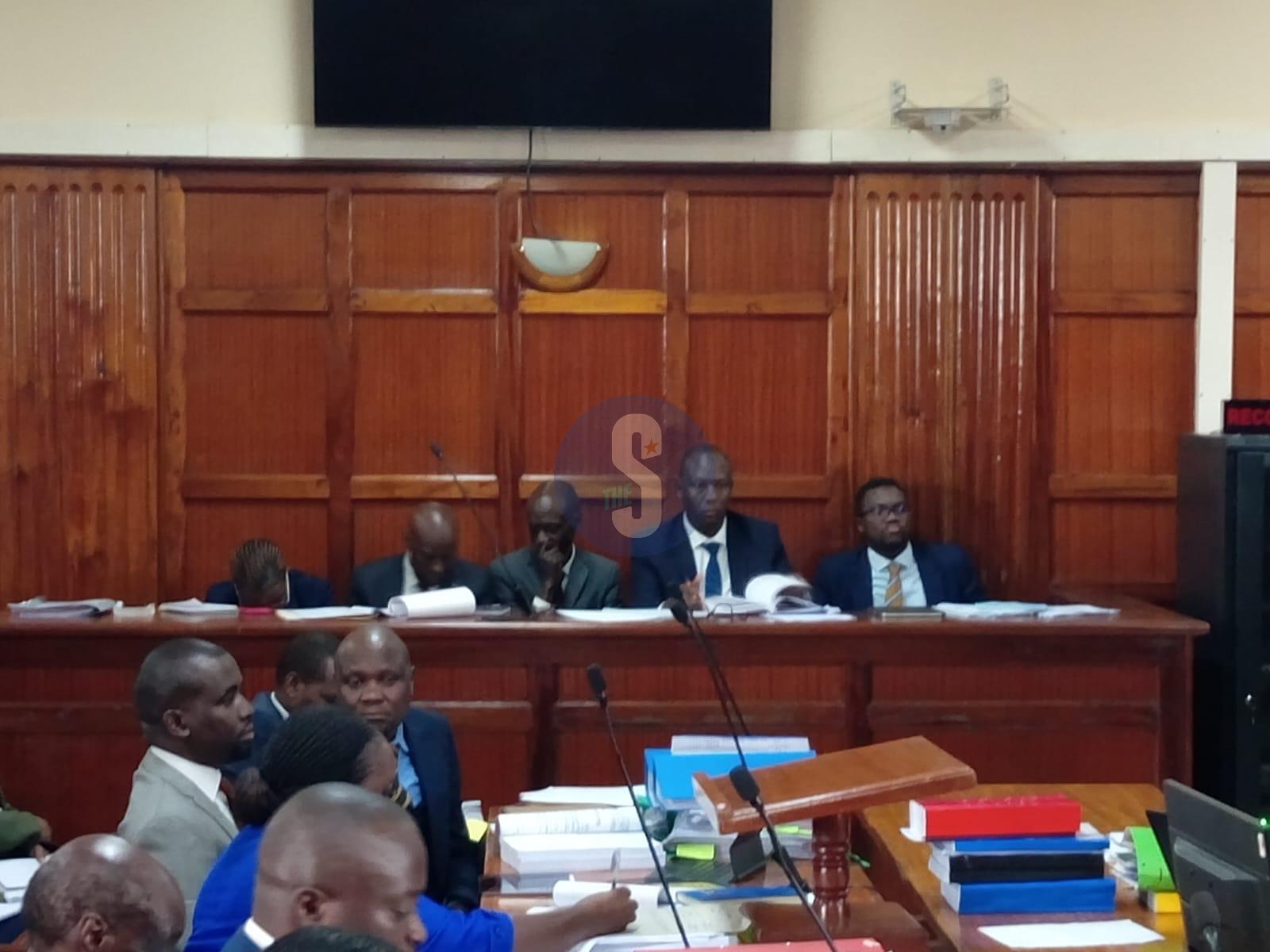
 Petition hearing of IEBC nominees selection panel on June 23, 2025/JAMES GICHIGI
Petition hearing of IEBC nominees selection panel on June 23, 2025/JAMES GICHIGIThe ongoing legal battle surrounding the appointment of Independent Boundaries Electoral Commission (IEBC) commissioners has taken a sharp turn as petitioners led by senior counsel Paul Muite accused the executive and the State law office of acting in contempt of court.
Muite on Monday told a three-judge bench in High Court that the gazettement of the commissioners, including the chair nominee, was done despite existing conservatory orders barring the process from proceeding.
“We submit that the executive is in contempt of this court. Opportunity undertaken in violation of a court order must be invalidated,” Muite stated.
He added that such defiance warranted punitive measures, including the imposition of a fine. Backing Muite, counsel Otieno submitted that once a party is aware of a court order, formal service is secondary.
“Knowledge of a court order supersedes service. A contemnor has no audience until the contempt is purged,” he told the court.
He referenced a supplementary bank authority filed on June 20, which he said reinforced the view that parties acting in contempt should not be heard.
Otieno also noted that the Attorney General’s office, representing the President, was present when the orders were issued and therefore cannot claim ignorance. However, respondents strongly pushed back against the claims.
Counsel Mbita, for the 1st respondent, argued that they had not been served with any formal application or affidavit for contempt and thus could not be expected to respond to allegations made in open court.
“This application is misplaced, lacking legal foundation. The rules of fair hearing prohibit altering a case after submissions have been made,” he submitted.
He accused the petitioners of attempting to introduce new grounds outside the original pleadings.
Lawyer Kipkogei, representing the 2nd respondent, dismissed the contempt claims as procedurally defective.
He noted that contempt is personal and must name specific individuals supported by facts, which had not been done.
“You cannot ask for a finding of contempt without identifying the contemnor. The court hasn’t been properly moved under the law,” he argued. He urged the bench to disregard the oral application and proceed with the substantive petition.
















